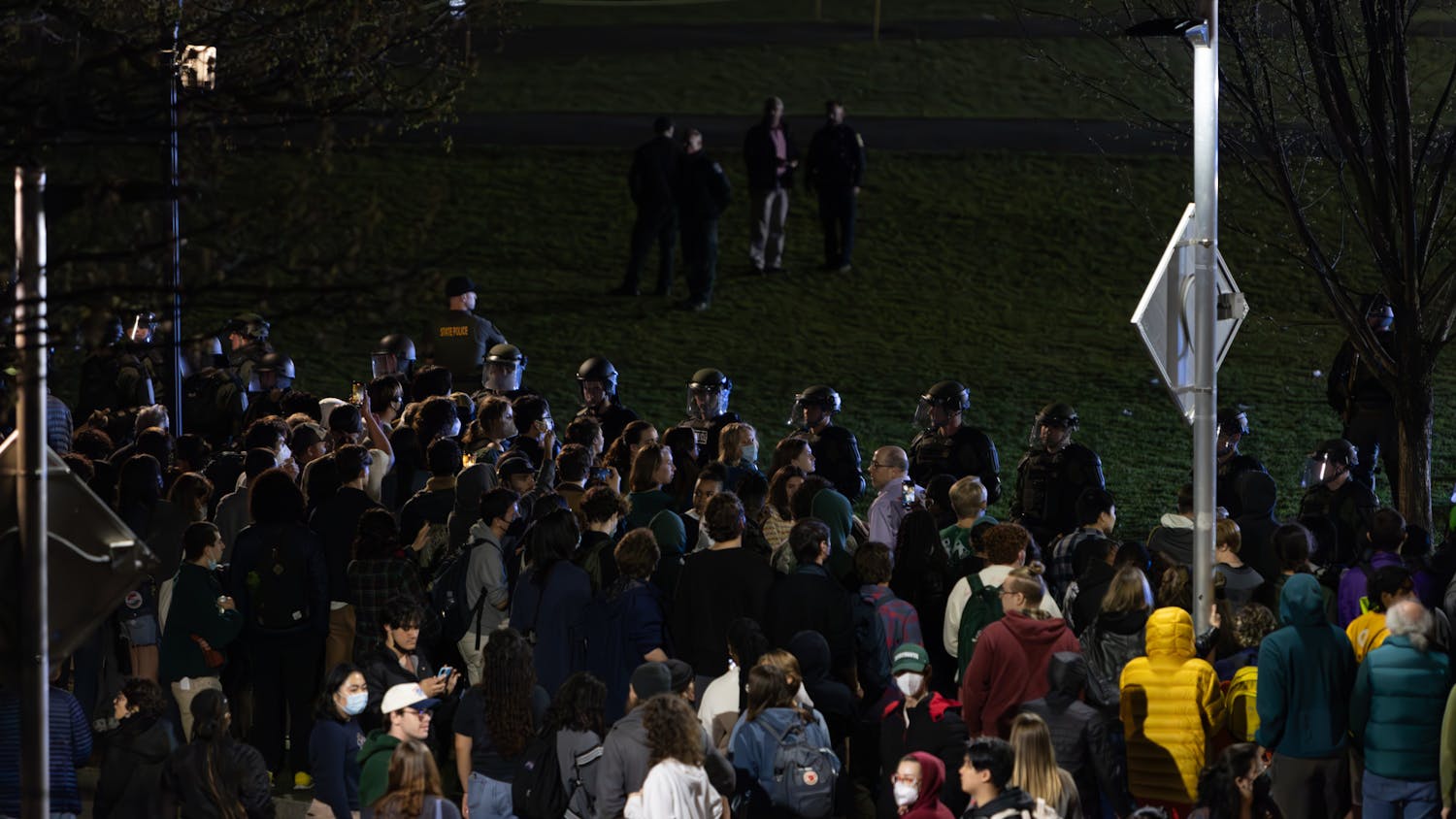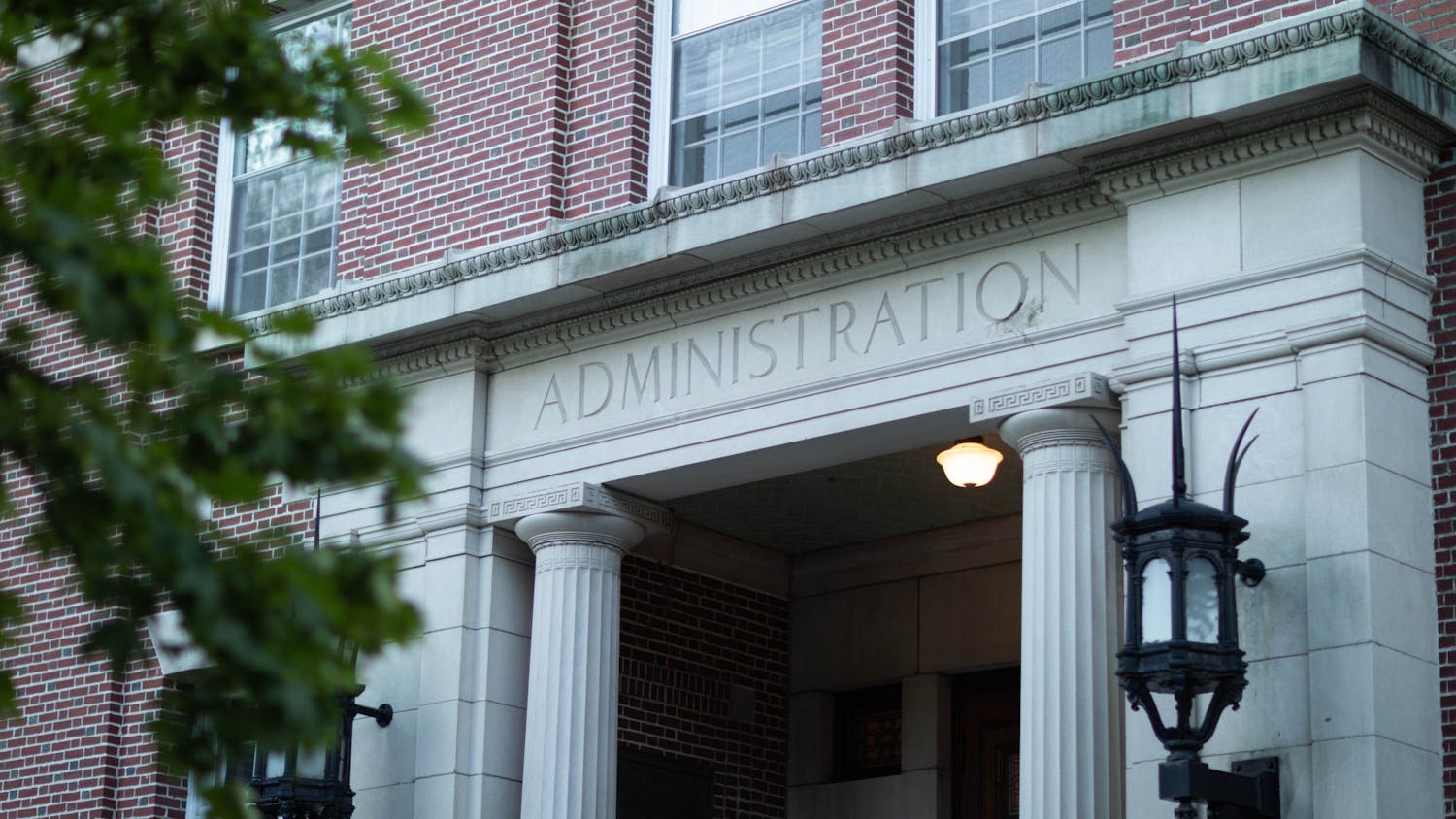A Dartmouth graduate student was arrested for the attempted manufacture of methamphetamine/amphetamine on Aug. 28, Hanover Police Chief Nicholas Giaccone said in an interview with The Dartmouth.
Randy Lambreghts, 28, whose graduate date is not listed in the Dartmouth Name Directory, allegedly ran a methamphetamine lab in his 3 School St. apartment, according to Giaccone.
Lambreghts was held on $20,000 bail and was arraigned on Aug. 29 at the Grafton Country Second Circuit Court, according to Giaccone. During his arraignment, the judge increased bail to $100,000 but reduced it to its original amount when Lambreghts surrendered his Belgian passport, Giaccone said. His bail was posted, and he is no longer being held, Giaccone said.
Lambreghts is expected to return to court on Oct. 11, according to Giaccone.
New Hampshire State Police, the Hanover Police Department and a hazardous materials team conducted an investigation into possible chemical activity at 3 School St., a residence that houses six Dartmouth graduate students in four separate apartments, Giaccone said. Lambreghts' apartment is located on a street that also houses undergraduate College students.
On the afternoon of Aug. 28, Lambreghts' two roommates, Zachary Hamaker GR'14 and Vaishali Mishra Th'14, called Safety and Security due to concerns for Lambreghts' welfare, according to Hanover Police Captain Frank Moran's supporting affidavit. The responding officer then alerted the Hanover Police Department to a "possible medical/mental health emergency," the affidavit said.
Hamaker is a graduate student in the math department, according to the department's website. Hamaker declined to comment and Mishra did not respond to request for comment.
Mishra and Hamaker noted that Lambreghts had been acting strangely, according to the affidavit. He burned olive oil in a pan overnight, shocked himself by putting a knife in an electrical outlet and took "some amount" of medication, the affidavit said.
Master Police Officer Jeffrey Fleury a certified Drug Recognition Expert noted a "strange odor" in the apartment upon arrival, according to the affaidavit. Officers on scene discovered batteries and printouts discussing red phosphorus and the extraction of pseudoephedrine, which are all components commonly use in the production of methamphetamine, the affidavit said.
During the search and seizure, Lambreghts was discovered unconscious on the floor of his bedroom, after which responders from the Hanover Fire Department woke him up. Lambreghts was then decontaminated and transported to Dartmouth-Hitchcock Medical Center for treatment, the affidavit said.
Lambreghts a Belgian citizen who has attended Dartmouth as a graduate student for seven years was subsequently taken into custody and charged with the attempted manufacture of methamphetamine/amphetamine, Giaccone said.
Among the items seized from Lambreghts' residence were a number of vials, plastic bags, unidentified liquids and powders and residues in glass jars, according to an inventory receipt written by an officer of the Drug Enforcement Administration. Cold medicine, drug paraphernalia, coffee filters, plastic tubing, note paper with a written chemical equation and a bong made from a plastic bottle were recovered from the scene, the receipt said. Moran also requested permission to seize Lambreghts's computer data.
The manufacture of methamphetamine is punishable by up to 20 years in prison, a fine of $300,000 or both, according to New Hampshire State Law.
Cases like this are "not unusual at all" for the Upper Valley, according to Giaccone, but a methamphetamine/amphetamine discovery at Dartmouth is unprecedented.
Giaccone declined to comment further on the ongoing investigation.
At Dartmouth, Lambreghts worked in genetics professor Jay Dunlap's lab, Dunlap said in an email to The Dartmouth. Dunlap's lab operates through the molecular and cellular biology graduate program and focuses its research on how organisms keep time, according to the program's website.
"Randy is a gifted individual and was a student I [sic] good standing when this incident occurred," Dunlap said in his email.



